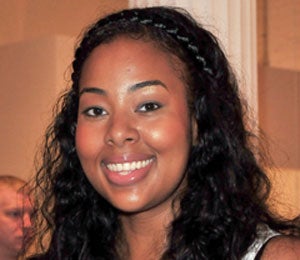
Plus-size model and actress Mia Amber Davis has died at the age of 36 after undergoing a routine knee surgery, reports TMZ.
According to Davis’ husband, Michael Yard, the vivacious model and actress (she starred in the comedy, “Road Trip,” in 2000) had gone to a Los Angeles hospital to correct an ongoing knee problem obtained from years of playing college basketball. Sadly, she never returned.
Yard says he spoke to his wife the morning of her surgery and she was in good spirits. Yet hours later her cousin called to tell him Davis had passed away. “I want to know what happened to my wife,” he told TMZ.
Davis is best remembered for modeling for Ashley Stewart and being the face of ESSENCE Music Festival headliner Jill Scott’s Butterfly Bra. She was also a fierce advocate for fuller figured women. She once appeared on CNN to discuss obesity in America. “The media doesn’t showcase overweight people, overweight women are not seen in Hollywood,” she said. “It’s like, why are we being targets but we’re invisible everywhere else?”
Rest in peace, Mia Amber Davis.





